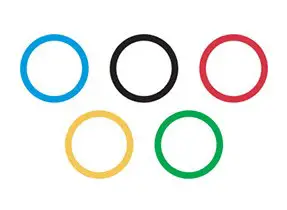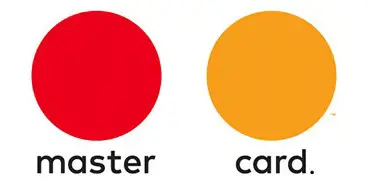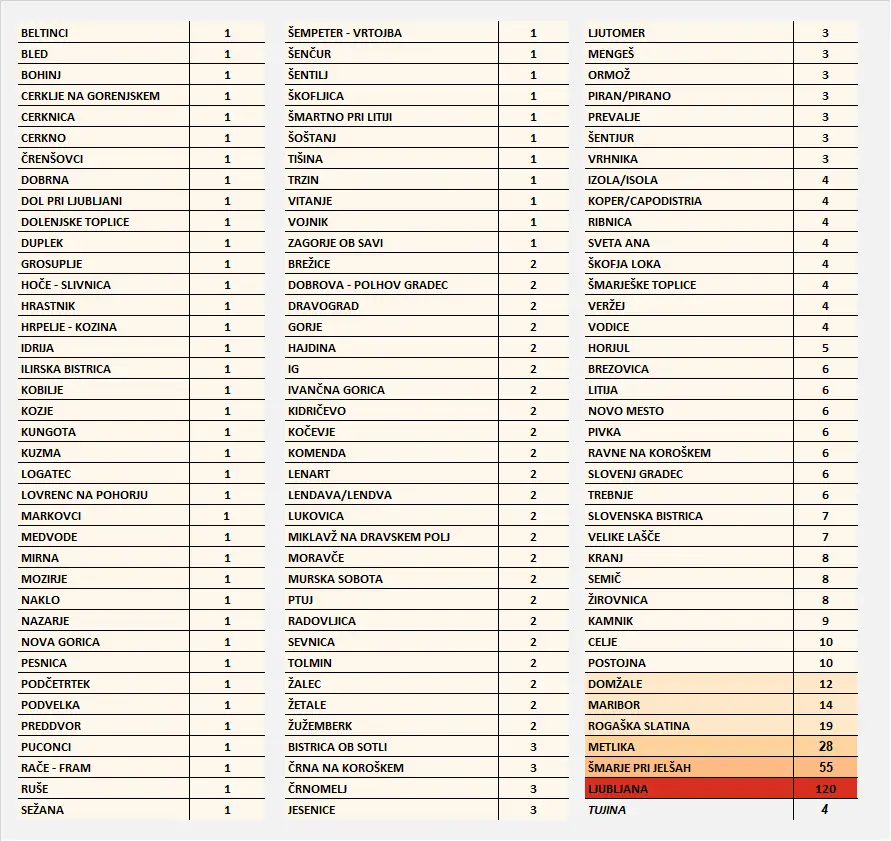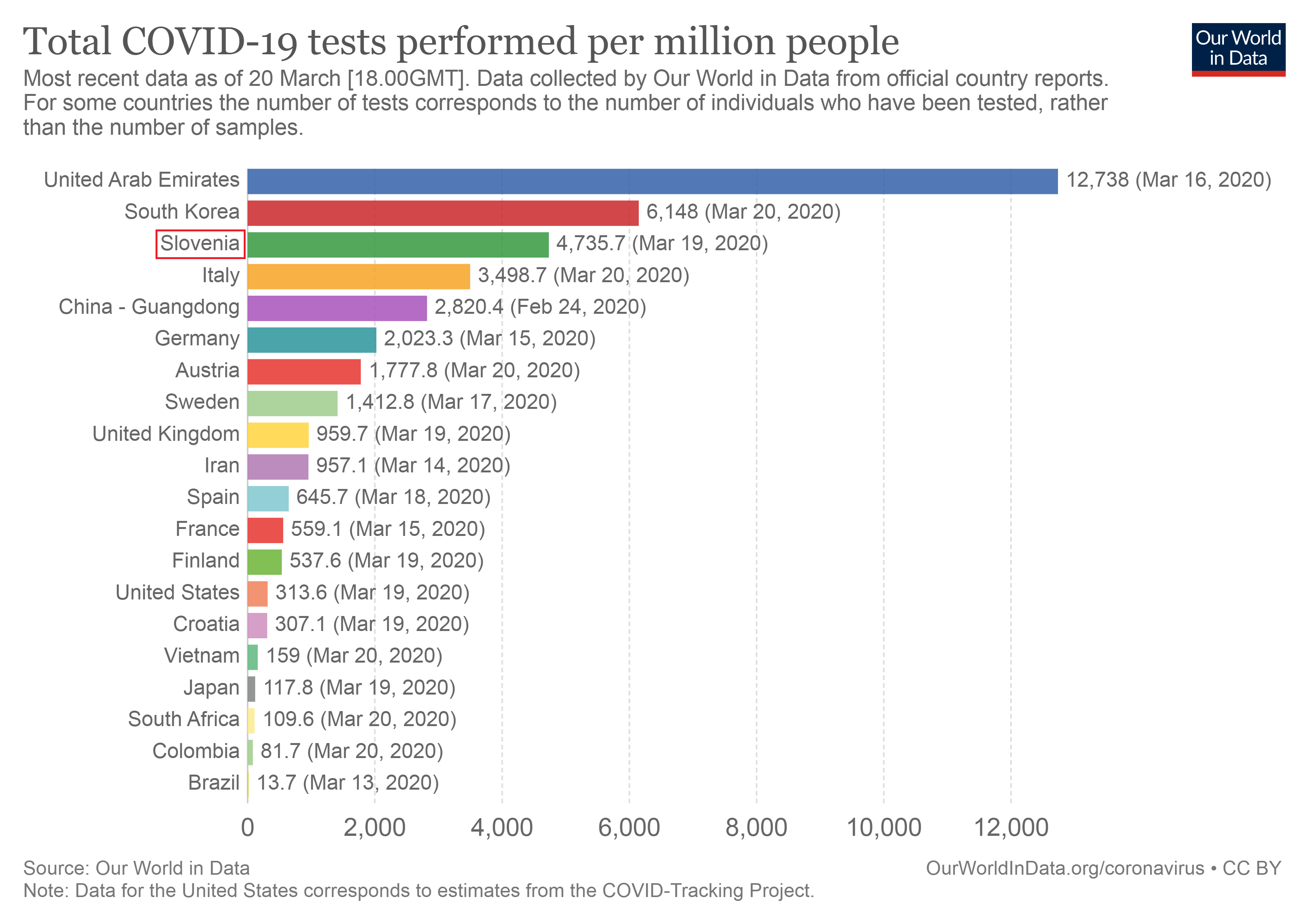Ljubljana related
STA, 29 March 2020 - Pensioners in Slovenia will only be allowed into stores between 8am and 10am as of Monday as new shopping restrictions have been put in place to protect the most vulnerable groups against coronavirus.
Under a previous decree that took effect on 19 March, shops had to give priority during the 8-10am slot to older persons, the disabled and pregnant women.
Now, this time slow will be reserved exclusively for these vulnerable groups while pensioners will not be allowed into shops after 10am at all.
The government said the best way to additionally protect vulnerable groups was to separate them physically from other consumers.
Other restrictions that shops are subject to remain in place. Most shops except those selling food, pharmacies and petrol stations remain closed until further notice. Those that are open operate from 8am to 6pm Monday through Saturday, a restriction that does not apply to petrol stations and pharmacies.
How old is a pensioner? There’s no official guidance on the age here, but I’d assume “the elderly”, and interpret that as you will (JL Flanner)
All our stories on coronavirus are here, while those covering covid-19 and Croatia are here. We'll have an update at the end of the day, and if you want newsflashes then we'll post those on Facebook
We can’t have pictures of COVID-19 every day. So instead we’ll try and show the works of Slovenian artists. Today it’s Igor Andjelić. You can see more of their work here.
Nursing homes hit by infections
Survey says most respondents trust government
Over 80 residents in six nursing homes infected
STA, 28 March 2020 - Eighty-three residents of nursing homes and 23 staff were infected with Covid-19 in Slovenia as of Friday, data from the Ministry of Labour, Family, Social Affairs and Equal Opportunities show.
Infections have been confirmed in six nursing homes around the country, apart from Metlika and Šmarje pri Jelšah also in Ljubljana, Naklo, Horjul and Ljutomer.
One of the nursing homes in Postojna could also become a hotspot after an employee tested positive for the virus yesterday. All residents - there are some 40 - and staff are being tested today.
Nine infected persons have so far died in Slovenia, all of them elderly persons with underlaying conditions. Several of them were residents of nursing homes.
The government's spokesperson for the coronavirus crisis Jelko Kacin told the press today that a special body bringing together directors of hospitals, community health centres and nursing homes would be set up in the coming days to see what else could be done to prevent the virus from spreading to nursing homes.
"We would like to protect nursing home residents from the virus at all cost," he said.
Strict measures to prevent the spreading of the virus to nursing homes are already in place, including a ban on visits, but State Secretary at the Labour Ministry Mateja Ribič again urged everyone today to stick to them to the benefit of all.
Poll shows 58% trust government on coronavirus action
STA, 28 March 2020 - More than 58% of those polled trust the government it is doing the right thing amid the coronavirus epidemic, with 22% not trusting it, a poll released by the newspapers Dnevnik and Večer on Saturday shows.
Votes of all four coalition parties trust the Janez Janša government the most as well as some voters of the opposition National Party, non-parliamentary People's Party (SLS) and the opposition Alenka Bratušek Party (SAB).
Less supportive of the government's action are voters of the opposition Social Democrats (SD), Left and Marjan Šarec List (LMŠ).
The least thrilled with the government's mode of coping with the epidemic are younger voters, the unemployed and voters from south-western Slovenia.
Over 55% meanwhile believe that the planned measures to help business, sole proprietors and the self-employed are sufficient.
Around a quarter consider them inadequate and 20% said they were not familiar well enough with them.
A vast majority of 78.5% are against the government's decision to move ministers and state secretaries to the highest public sector pay bracket. Not even the voters of the ruling Democrats (SDS) support the measure. Almost 17% however agrees with it.
However, more than 80% welcome the government's subsequent decision to cut public office holders' pay by 30% for the duration of the epidemic, with over 11% against it.
The online survey was carried out by pollster Ninamedia among 1,300 people on 25 and 26 March.
All our stories on coronavirus are here, while those covering covid-19 and Croatia are here. We'll have an update at the end of the day, and if you want newsflashes then we'll post those on Facebook
We can’t have pictures of COVID-19 every day. So instead we’ll try and show the works of Slovenian artists. Today it’s Gordana Grlič, who owns the best photo store on Ljubljana's Trubarjeva cesta - Photo Pauli
STA, 28 March 2020 - Fifty-two new Covid-19 cases were confirmed but no new deaths recorded in Slovenia on Friday, putting the national total of infected persons at 684 and death toll at nine. The daily rise in new cases is below Thursday's record 70. A total of 1,387 people were tested for the virus on Friday, the Government Communication Office said on Saturday.
By Friday, 90 infected persons were admitted to hospital, of whom 25 are in intensive care and the majority need a ventilator, the government's spokesperson for the coronavirus crisis Jelko Kacin told the press today.
Related: How Many Hospital Beds Are There In Slovenia?
Answering a question from the press, he also said that no cabinet member was infected, while they all stick to very strict safety measures.
Kacin moreover announced that due to the complexity of the matter, the government is unlikely to adopt the EUR 2 billion economic stimulus package today but tomorrow.
The Government Communication Office said later in the day that the government will meet today at 4pm to continue debating the bill. It is however not clear whether it will complete the debate today.
Infected are however three employees of the national Agency Commodity Reserves, including its director, but they all feel fine and are working from home.
A special body bringing together hospital, community health centre and nursing home directors will be set up in the coming days to see what else could be done to prevent the virus from spreading to nursing homes, announced Kacin.
Related: How Many Cases of Covid-19 Are in My Municipality?
Several Covid-19 fatalities were residents of nursing homes, with the Šmarje pri Jelšah nursing home one of the hotspots of the epidemic in the country.
While visits to nursing homes are not allowed, State Secretary at the Labour, Family and Social Affairs Ministry Mateja Ribič said the elderly there are well taken care of despite the situation.
She said a number of measures have been taken to protect the staff and residents and urged everyone to stick to them to the benefit of all.
An employee of a nursing home in Postojna tested positive for the virus last evening so extensive testing of all staff and a total of some 40 residents is under way in Postojna today, according to the local Civil Protection unit.
As for personal protective equipment at nursing homes, Ribič said all those who need it, get it. She expects the shortage to ease as new shipments are coming to the country daily.
The country's Civil Protection head Srečko Šestan meanwhile told the STA that Slovenia had enough protective equipment for at least another week.
He said the biggest shortage is for the protection class FFP2 and FFP3 respirator masks, which provide the best protection and are intended primarily for medical staff.
"We'll have to use them sparingly, giving them to nobody else but medical staff," Šestan said.
He said most of the protective equipment coming in goes to healthcare organisations, including hospitals, community health centres, nursing homes, pharmacies and dentists.
The Health Ministry confirmed that two younger persons in quarantine at the Paka Hotel in the town of Velenje tested positive for the virus, but feel fine.
As many as 42 Slovenians who returned from Spain on a plane on Friday were quarantined there for two weeks.
More Slovenians are planned to return home amid the pandemic, with a plane bringing 45 Slovenians from Madrid planned to land at Ljubljana airport around midnight.
The same plane, which will also carry Croatian, Austrian and Hungarian citizens, will then fly on to Croatia's Zagreb to pick 80 Spaniards back home.
Andrej Šter of the Foreign Ministry explained for TV Slovenija that Slovenia will only have to organise the transit of Austrians to their home country.
Another ten Slovenians are expected to arrive in Slovenia from Skopje and Prishtina today.
The covers and editorials from leading weeklies of the Left and Right for the work-week ending Friday, 27 March 2020. All our stories about coronavirus and Slovenia are here
Mladina: Beware surveillance capitalism
STA, 27 March 2020 - In the times that are coming, democracy will be more important than we could ever imagine and the countries that do not have people fully committed to human rights and democracy in power now will have it hard, the editor-in-chief of the left-wing weekly Mladina, Grega Repovž, argues in Friday's editorial.
"In the coming weeks (!) so much will happen that we will indeed wake up to a different world, a different world order", Repovž says, pointing to restrictive measures and electronic surveillance devices that Asian countries are using to prevent the spread of coronavirus among their citizens.
"The use of such applications is undoubtedly controversial, because they severely encroach on personal privacy. But as long as health arguments are used we are somehow trying to understand them," Repovž says.
However, the world today trembles before another fear: the fear of a great economic collapse. "This fear is getting worse, because for healthy people quarantined today it is much more tangible and known than some unknown diseases. One of the reasons for this is that only a decade has passed since the last major crisis."
It was only a matter of time before those who are primarily concerned about the state of the economy realised that these applications and surveillance of infected persons can actually enable them to allow citizens to return to their jobs early in the name of the economy and assume their role of consumers again.
The technology enabling surveillance of infected persons is sending the message that capitalism can function even before the pandemic is completely contained.
German Health Minister Jens Spahn revealed for Die Zeit this Wednesday that the German government was already working on a plan to revive public life before the end of the epidemic, so that life could return to normal for most people right after Easter, except for the older and the most vulnerable, who would be asked to remain in quarantine.
He argued that in a liberal society it is not possible to restrict contacts between people in the long-term, which Repovž says is a seemingly acceptable view for any liberal. But his next sentence was that digital tracking of people's contacts, meaning tracing people's mobiles, will be inevitable in this scenario.
"And so it has happened. The wall has been penetrated. The one thing we feared has happened: the argument of liberal values has been used to violate those exact values only to let capitalism start its engines again."
The question now is whether we will give up our freedom and privacy to enable life to start again despite the virus that is among us. Will we even have a chance to be against? "Is this the world we want to live in? And primarily: Can you trust your authorities - for example in Slovenia - that they will not abuse the situation?"
But what if this experiment causes the disease to spread even more, and bring even more deaths, Repovž wonders under the headline Surveillance Capitalism Is Coming.
Demokracija: Mainstream media should not attack government
STA, 26 March 2020 - The right-wing magazine Demokracija endorses government restrictions aimed at slowing down the spread of coronavirus in its latest edition, berating mainstream media for accusing the government of censorship.
In the piece headlined What the World Will Be Like After the End of the Outbreak, Jože Biščak, the editor-in-chief, writes that everyone should abide by the restrictions and behave as if they were contagious, including journalists.
"In particular the ladies who are reporting on the ground in front of cameras without protective masks (great example for the viewers indeed), and then when the government cancels live press conferences, go crying that they cannot do their job, complaining about censorship, talking about dictatorship, curbs on the freedom of speech.
"Dear readers, we are at war, at war against a virus we do not know well enough and do not know what consequences it will have on people's health."
Biščak says that no one is denying anyone's right to express their opinion, or hindering journalist work and that no one will be any less informed if the government responds to questions remotely.
He accuses the media mainstream of using the state of emergency to attack the centre-right government, arguing that people are not interested in who has been replaced at the helm of the army or police force at the moment, but rather if and how they will survive the epidemic.
"Things that are completely irrelevant to health at the moment are only of interest to socio-political workers, a phalanx of NGOs and ideological parasites as they are helplessly watching how they are losing their influence and how ordinary people are welcoming government measures."
Biščak says that restrictions will pass and that the current government has no desire to extend the state of emergency beyond what necessary, as mainstream media commentators claim.
"However, this is a time for a rethink what world we want to live in after the end of the outbreak. A globalised one where international elites take decisions that affect us and decide the quality of our lives, or a world where the power would be decentralised, people freer and regions more independent?"
All our posts in this series are here
All our stories on coronavirus are here, while those covering covid-19 and Croatia are here. We'll have an update at the end of the day, and if you want newsflashes then we'll post those on Facebook
We can’t have pictures of COVID-19 every day. So instead we’ll try and show the works of Slovenian artists. Today it’s Gordana Grlič.
Covid-19 death toll rises to nine as two more deaths reported Friday
Infectologist says Covid-19 numbers do not show whole picture
Quarantine protocol to apply to all Slovenians returning from hotspots
Covid-19 death toll rises to nine as two more deaths reported Friday
STA, 27 March 2020 - The coronavirus death toll in Slovenia rose to nine on Friday as two persons died, the second day in a row that more than one fatality has been confirmed. By Thursday midnight the total number of confirmed infections rose to 632, up by a record seventy cases in a day, the latest government data show.
Two patients who died on Friday had been hospitalised at the Golnik hospital near Kranj and the Celje General Hospital, the Health Ministry said.
Similar to other deaths, the persons who died yesterday and today were elderly with underlying conditions, the government Communication Office told the STA.
Among the nine dead are four residents of the Metlika retirement home, while another three were allegedly residents of the retirement home in Šmarje pri Jelšah. Both towns have a high rate of confirmed cases.
The National Institute for Public Health (NIJZ) meanwhile said that the new infections stemmed from clusters that had formed around the first detected cases, which had been imported.
Commenting on the increase in positive cases, NIJZ said that these were expected, as most were related infections in the retirement homes in Metlika and Šmarje pri Jelšah. It expects the growth in cases to slow down because of the lockdown measures imposed in Slovenia nearly two weeks ago.
The first case of Covid-19 has also been confirmed in the ranks of the Slovenian Armed Forces. All who were in contact with the person have been traced down and tested negative. In a press release the military also said it had set up a mobile lab to help test the Slovenians returning from abroad upon arrival.
In the evening, public broadcaster TV Slovenija reported that the first case has also been discovered in the police ranks. The police officer was reportedly working at a cooperation centre for security bodies in Dolga Vas, near Lendava (NE), where police officers from Austria, Croatia and Hungary work together.
Apart from the Slovenian police officer, a Croatian and an Austrian officer have also been infected, TV Slovenija reported.
A total of 90 patients were hospitalised as of Thursday, of which 22 were in intensive care. More than 18,000 tests were carried out by midnight on Thursday, over a thousand yesterday alone.
Meanwhile, reports from hospitals suggest 101 patients were in hospital today. Covid-19 patients are currently being treated in four hospitals, apart from Golnik and Celje, also at UKC Maribor and the UKC Ljubljana's Clinic for Infectious Diseases.
The latter is treating 50 patients, the highest number among all hospitals. UKC Ljubljana is also monitoring 30 patients with mild symptoms remotely.
UKC Maribor has meanwhile announced stricter measures as of Monday, shutting down all activities bar emergency assistance because the number of patients in need of intensive therapy is growing very fast.
The hospital is also concerned because it had admitted a patient who tested negative for Covid-19 and was hospitalised for a different illness but was positive several days later, after already having been in contact with other patients who tested negative.
Infectologist says Covid-19 numbers do not show whole picture
STA, 27 March 2020 - Infectologist Janez Tomažič believes that the number of cases of Covid-19 in Slovenia does not show the whole picture. Commenting on the highest increase in confirmed cases so far, he said that "if the increase is among the vulnerable groups, then I'm worried, but if the increase is among... the middle aged, then the problem is not so bad".
Speaking for the STA, the expert in infectious diseases who works at the UKC Ljubljana hospital, said it was key that Slovenia does not see an increase in positive cases among people over 60 with underlying conditions and persons with immune deficiencies.
The most recent data from the National Institute for Public Health (NIJZ) shows that the share of the disease is highest among people over 85 (88 per 100,000) followed by the 25-34 age group (42 per 100,000).
Covid-19 is especially problematic for retirement homes, where there are many elderly people in close proximity and the infection can spread rapidly. "All preventative measures must be followed, such as complete ban on visits and sick employees staying at home."
"We know the course of the illness quite good. Usually it develops slowly with mild symptoms in the early days, even in vulnerable groups. It starts to worsen around day seven and around day ten it becomes clear whether the patient will have a severe course of the illness."
The key thing is to avoid a rapid increase in hospitalisations. "We're worried it might come to random hospitalisations of patients who would not benefit from this or see the quality of life improved."
Tomažič illustrated that in Italy, decisions were sometimes made in panic, sending to hospital people for whom this was far from beneficial, as the hospitalisation only decreased the quality of their remaining life.
"The transportation alone, intubation, needles... and all for nothing. That is why these decisions are so incredibly important. But because they are very sensitive, the discussions with families need to be done expertly, humanely and with dignity."
Now is the time to discuss this, because the situation is relatively calm and this could be talked through without haste, in peace, humanely and with dignity. These patients need to receive expert and ethical care, he underlined.
"It is essential that these decisions and talks with the patient's family involve not only the GP... but also experts from secondary and tertiary institutions, a psychologist and, when at all possible, a palliative care specialist." Thus a task force has been established to assist retirement homes.
He believes good response and organisation within retirement homes is key, saying that the two homes that have seen the most positive cases, in Šmarje pri Jelšah and Metlika, have learnt a lot and became very well organised.
Quarantine protocol to apply to all Slovenians returning from hotspots
STA, 27 March 2020 - The government announced on Friday that all Slovenians returning to Slovenia from coronavirus hotspots will be put into state-administrated quarantine. The measure has so far affected 445 persons, Jelko Kacin, the government's spokesman for the coronavirus crisis, told the press.
The announced was made after 41 Slovenian nationals who were flown in from Madrid late on Thursday were not sent into self-isolation but quarantined in a hotel in Velenje for a 14-day period.
It was said that the same quarantine protocol would be used for a second plane from Spain, to be organised on Saturday, but Kacin confirmed today it would apply to all Slovenians returning from coronavirus hotspots.
However, he singled out Spain again, saying that quite a few Slovenians remained there and that these flights would continue almost on a daily basis.
In an effort to assuage locals in Velenje, where the Paka Hotel was made available free of charge by Hisense, the Chinese-based owner of household appliances maker Gorenje, Kacin said this would not be the only town with a quarantine unit.
"There are many more Slovenians abroad and this is a good example of solidarity that is crucial in these difficult times. I hope this will serve as an inspiration to other companies with vacant accommodation facilities," he said. Railways operator Slovenske Železnice has announced it has made available the holiday accommodation facilities it owns for quarantine purposes.
There has been some resistance in Velenje, with Deputy Mayor Peter Dermol expressing indignation that the local community learnt about the Paka Hotel quarantine from the media and the fact that the local civil protection and health authorities had not been informed about the government's decision.
In the afternoon, the situation calmed down, with Andrej Šter, the head of the Foreign Ministry's consular service, apologising publicly for failure to inform the community and Dermol accepting his apology.
What is more, the care for those in quarantine has been taken over by the Velenje municipality. The Civil Protection has also said that 42 people are being quarantined at the Paka Hotel, among them two minors.
All of the people in quarantine will be tested again this evening, then again in six days and once more in a fortnight. Among them is also basketball player Zoran Dragić, who told the press press he believes two weeks' quarantine was too long and that nobody from the plane was infected.
One of the quarantined persons expressed worry to the STA over not having protective gear and over the danger of legionnaires disease because the hotel had been out of order. "Nobody warned us that tap water wasn't safe, we only received bottled water in the course of the day."
STA, 26 March 2020 - The Chamber of Craft and Small Business (OZS) has warned that as many as 1,400 sole proprietors closed their business this month and proposes that these also be included in the measures planned by the government to alleviate the economic impact of the coronavirus epidemic if they opt to relaunch their business.
The OZS says that many of the sole proprietors have closed their firms in order to avoid paying social security contributions and taxes at a time when demand for their services and products has died down.
"We need to understand the distress of many sole proprietors who lost their income overnight... and because there was only talk of deferring the payment of contributions and taxes, many opted to close their businesses," the chamber said on Thursday.
Last week, the National Assembly passed changes allowing sole proprietors to defer the payment of social security contributions and taxes for April, May and June.
This week, the government announced additional measures for sole proprietors, including social security contribution and tax exemptions, and providing a monthly universal income of 70% of the minimum wage.
Details of this proposal are to be defined by the government on Friday.
The OZS warned today that unless sole proprietors who had closed their businesses be included in these measures, they would end up at the Employment Office and in need of welfare, becoming an additional burden for the state.
The OZS also proposes that the measures planned be effective as of 1 March, when the slump in orders had begun to show.
All our stories on coronavirus are here, while those covering covid-19 and Croatia are here. We'll have an update at the end of the day, and if you want newsflashes then we'll post those on Facebook
We can’t have pictures of COVID-19 every day. So instead we’ll try and show the works of Slovenian artists. Today it’s Aleksandra Jereb. You can see more of her work here.
Sixth Covid-19-related death in Slovenia confirmed
Survey: Slovenians quite optimistic about coronavirus situation
Slovenia's stock of protective gear sufficient for at least a week
Top officials pledge effective and democratic action
Pahor endorses govt coronavirus action
Slovenians returning from Spain to be put in strict quarantine
Coronavirus crisis particularly hard on Roma without access to drinking water
Sixth Covid-19-related death in Slovenia confirmed
STA, 26 March 2020 - An resident of the Metlika nursing home died last night of complications caused by the new coronavirus, bringing the total number of Covid-19-related deaths in Slovenia to six. The person had several underlying conditions, the head of UKC Ljubljana's infectious disease clinic Tatjana Lejko Zupanc announced on Thursday.
There are currently 41 persons at the infectious disease clinic treated for Covid-19, of which 11 are in intensive care. One of the patients from the intensive therapy unit no longer needs artificial ventilation, UKC Ljubljana said on Twitter.
"This is exceptionally good news, which we had awaited eagerly," said Lejko Zupanc, adding that additional beds were being prepared at the orthopaedic clinic. A total of 20 beds have been prepared, and the capacity will be further expanded, if necessary.
She said that it was hard to predict how things would develop and that more would be known next week. "The next week will be critical, and then it will be easier to assess the situation," but "the end will not come over night."
Lejko Zupanc noted that all patients undergoing intensive therapy needed several weeks to be unplugged from artificial ventilation. Patients in other wards also need oxygen and hospitalisation takes a long time, which is why the number of patients in increasing.
She added that doctors at UKC Ljubljana spent a lot of time on duty and that they were under immense stress, but that they remained very optimistic for now.
The UKC Maribor hospital reported that 19 patients were being treated there, including four persons in intensive care, who are connected to ventilators. Two patients are also in intensive care in the Golnik Clinic for Respiratory and Allergic Diseases.
Nine Covid-19 patients are currently hospitalised in Celje, with one in intensive care, the Celje general hospital said on Twitter.
A total of 36 new Covid-19 cases were confirmed on Wednesday, bringing the total number to 562. A total of 17,294 tests have been conducted so far.
Survey: Slovenians quite optimistic about coronavirus situation
STA, 26 March 2020 - Slovenians are still worried about the coronavirus epidemic, but an increasing number (57%) believe the situation is improving, a survey carried out by pollster Valicon between 23 and 25 March shows. Only a week ago, over 50% of those polled said the situation was getting worse.
While 3% even think the situation is improving considerably, the number of those who believe it is much worse than it was has dropped from 8% last week to only 3%.
And while 84% of the 566 polled respondents are worried, two points up from last week, only 25% are very worried, a drop of two points.
Almost 50% of those polled perceive the situation as rather negative, labelling it as "unpleasant or tiresome", but over 50% gave more positive answers such as "acceptable or manageable".
The respondents are still most worried about their families (74% as opposed to 81% a week ago), followed by being worried how long the epidemic will last (54%) and the consequences it will have for the economy (46%).
The majority (51%) approve of anti-coronavirus measures taken by the government, 46% said they were partly adequate or partly inadequate, with 3% seeing them as outright inadequate.
The number of those who believe the measures are not strict enough has fallen from over 50% to 40% in a week, with 53% describing them as appropriate.
Forty-three percent of Slovenians believes schools and kindergartens will be closed and public life at a standstill for another two months, whereas around 30% believe this will change in a month.
Slovenia's stock of protective gear sufficient for at least a week
STA, 26 March 2020 - After Slovenia received several shipments of protective gear in the past few days, its current stock should suffice at least for a week, chief of the civil protection service Srečko Šestan told the press. New orders have also been placed, so there should be enough protective gear in the future as well, said Aleš Cantarutti of the Economy Ministry.
Slovenia currently has over 7,500 protective suits, 26,000 FFP3/N95 masks, 790,000 surgical masks, 100,000 IIR surgical masks and 7.7 million pairs of gloves. Provided that the gear is used up at a similar pace as it was in the past week, this will suffice for at least one week, Šestan said, noting that additional shipments were expected.
He said health institutions - hospitals, community health centres, retirement homes, pharmacies and dentists - had priority in the distribution of protective gear. Some 30% of the gear is intended for other providers of crucial services such as funeral services, taxi drivers, security guards, prisons etc.
The Civil Protection and Disaster Relief Administration has between 2,000 and 5,000 people working in the field every day, including helping with border checks and distributing aid to people's homes. Šestan said they were also ready for a potential increase in demand for their services.
Some 100 employees of the Financial Administration (FURS) and FURS vehicles were also helping with the distribution of the gear, the chief of the civil protection services said.
According to Economy Ministry State Secretary Aleš Cantarutti, the first Slovenian-made masks have already been delivered as well. Given the number of companies making face masks in Slovenia now, Cantarutti believes the country will eventually reach a certain degree of self-sufficiency in this respect.
Nevertheless, the Commodity Reserves Institute has made several new orders in the past days, and the delivery of those items, including 326 additional ventilators, is expected in the next 60 days.
Additional ventilators have also been ordered by the UKC ljubljana and Celje hospitals, and together with a donation by the power utility HSE, the health system should get an additional 472 ventilators shortly.
But since it is not clear what the demand for these devices will be, another 100 will be ordered. They should be in Slovenia in the next four to six weeks.
Top officials pledge effective and democratic action
STA, 26 March 2020 - Slovenia's top officials met on Thursday to discuss the functioning of political institutions and joint action during the coronavirus crisis. They said action must be effective but also democratic so as to prevent a decline of trust in democratic institutions.
"The way we survive the crisis will determine how we live after the crisis," President Borut Pahor said after talks with Prime Minister Janez Janša and the heads of both chambers of parliament, National Assembly Speaker Igor Zorčič and National Council President Alojz Kovšca.
Pahor said the intention of the meeting was to determine whether adjustments may be needed so that all decisions are taken fast and in line with the constitution and the law.
"It is of utmost importance that this crisis - health and social crisis - be tackled in a democratic manner with due respect for all standards," he said.
He said the government was doing a good job while the general atmosphere in politics was favourable with differences in views reconciled without hampering the efficiency of measures.
Janša said the government was working efficiently and lawfully, with the measures realistic and feasible, adding that it was "fighting a battle against time".
Zorčič mentioned the possibility of shortening the time frame after which new bills and legislative changes that may not be challenged in referendum take effect, with Pahor saying that the currently valid period of eight days remained in place.
If there is a need to change this so as to allow more effective decision-making, the rule may be changed in line with the rules of procedure by means of democratic procedures, Pahor said.
Zorčič said that some legal experts believed solutions to this could be found within the existing legislation, "but I believe nobody has said that this could already be done today and without risk. And when it comes to emergency laws we really do not want to risk having them declared unconstitutional because they had taken effect to quickly."
The upper chamber president said that the councillors would make an effort to make decisions as fast as possible, noting that the National Council had already waived the right to veto the most recent package of emergency measures drafted by the government.
Talking to the STA after the joint statement, Kovšca said that in the future he would inquire with councillors whether they were thinking about vetoing any bill discussed in parliament and in case of a critical number of affirmative answers, inform the speaker and the president about this.
"Democracy, its standards and norms do not make effectiveness impossible. But in such extraordinary situations they do require more coordination, foresight, cooperation and understanding," Pahor said.
Zorčič said that one of the main challenges was to "prepare for MPs falling ill and get everything ready so that at least a part of their work could be done from home". This is not allowed in the rules of procedure, but the speaker believes that there is political will to change that. The National Council has meanwhile already video-conferenced its sessions, said Kovšca.
Janša and Pahor also expressed hope that EU countries will learn from this epidemic. Pointing to the migration crisis, Pahor said that the global pandemic had shown for a second time in a short time that the EU was unable to fight together. He hopes the bloc will draw a lesson from the situation so as to strengthen the trust of the people.
The prime minister echoed this. His government is "making a list of things that need to be prepared if Slovenia is faced with another epidemic in the future. As far as we're concerned, we'll be a hundred times better prepared that we were now."
Pahor endorses govt coronavirus action
STA, 26 March 2020 - President Borut Pahor has endorsed the government action to contain the coronavirus outbreak in Slovenia as well as the EUR 2 billion stimulus package it set out on Tuesday. In a televised interview last night, he commended citizens and the opposition for responsible conduct.
In an interview broadcast on the late night Odmevi news show on TV Slovenija, Pahor said the composition of the group of experts advising the government on the crisis measures inspired great confidence, and the measures themselves were a step in the right direction.
"I'm not saying they are ideal or that they won't need amendments and adjustments on the go, but I feel they are being taken on time and are such that no one will be left behind," he said about a legislative package to aid businesses and people, to be adopted by the government on Friday.
The president finds action to contain the epidemic appropriate. He praised in particular health staff and the health system as a whole. "They've managed to flatten the curve of infections and the sick to an extent the system can manage."
He in particular noted a "responsible attitude" by the opposition: "They have their opinion, criticism, but they are doing it in a responsible way."
He also lavished praise on the citizens for "exemplary" abiding by the measures imposed. "I'm proud of our homeland and our people, how we've responded in this serious situation to the recommendations and instructions of the competent services."
Asked whether the lockdown measures were taken on time, he said neither South Korea nor Singapore claimed they had taken all the necessary measures on time.
"No country in the world, not even China, has reacted right away. There's no rule book for such a situation. It's an unprecedented situation. Perhaps Slovenia should have taken some steps sooner or differently as well, but we'll be all wise after the event.
"Fact is we've caught the last train for those radical, partly excessive measures that I've welcomed so that we've flattened the curve. While we cannot project the peak, we may be optimistic that due to the right action Slovenia is on top of the situation."
Pahor expects the health crisis to be followed by a recession where it would be important to take measures that would not generate inequality. "I find it important that there won't be differences at the level of countries or between countries that could provoke disappointments, even anger, which would then reduce politics' potential to manage the situation."
The latter issue would be the topic of the four leaders' meeting today, as Pahor hosts PM Janez Janša and the speakers of both houses of parliament. "I find it important not to focus only on measures aimed at reducing the number of infected and sick, we must also take on the consequences so that everyone gets the feeling they were not left behind in this crisis."
Pahor reiterated his support for invoking a special clause of the defence act to give the army limited police powers, so that it could alleviate the burden on the police on the south border.
However, he finds it important that deputy factions are consulted. "It's essential to keep the sense of democracy, democratic standards despite the state of emergency (...) We must convince the needed majority in parliament with arguments that this is a necessary measure."
Slovenians returning from Spain to be put in strict quarantine
STA, 26 March 2020 - Some 100 Slovenians will return home on Thursday on evacuation flights arranged by the Foreign Ministry. About 50 have already been flown in from Warsaw and Prague, while 50 are to return on a flight from Madrid this evening. Coming from a high-risk area, the latter will not go into self-isolation but will be quarantined in a hotel.
Apart from the Slovenian passengers - among them is reportedly also basketball player Zoran Dragić - the flight from Madrid will also carry a handful of Austrian citizens.
The Slovenian citizens have been informed by the embassy in Spain that they would not be self-isolating at home. The decision to place them at a separate location was made by health experts because Spain is a high-risk country, the Foreign Ministry said.
They will be placed in Paka Hotel in Velenje, which has been made available to the state free of charge by Hisense, the Chinese-based owner of household appliances maker Gorenje.
The Foreign Ministry is currently organising a second flight from Madrid, with take-off expected on Saturday. The ministry also called on those who want to return to get in touch with the Slovenian embassy in Madrid as soon as possible.
This flight from Spain will follow the same quarantine protocol, the Foreign Ministry said, adding that the Health Ministry and the National Institute of Public Health (NIJZ) are in charge of quarantine.
The previous night 50 Slovenians returned on a flight from Warsaw that made a layover in Prague, where the plane was also boarded by a group of seven retuning from Vietnam. Meanwhile, the flight from Ljubljana to Warsaw carried 12 Poles and two Czech citizens.
Moreover, there is also a possibility of an evacuation flight from Helsinki next week, sometime between Monday and Wednesday. The flight may make layovers in other Nordic countries, the Slovenian embassy in Denmark has said on its website.
The embassy in Brasilia is meanwhile getting everything ready to get Slovenians out of Ecuador. Three flights have been planned: one on Friday from Quito to Frankfurt with a layover in Guayaquil, and two on Monday, both from Quito to Madrid with layovers in Guayaquil.
These will be special flights and ticket bookings will only be possible through embassies.
A crisis team at the Foreign Ministry has been working tirelessly for days on end to ensure Slovenians abroad can return home, as global passenger transport has been gradually shutting down. Slovenia has suspended regular air passenger traffic last week, however, evacuation flights may land and take off.
Coronavirus crisis particularly hard on Roma without access to drinking water
STA, 26 March 2020 - Several informal Roma settlements in Slovenia remain without drinking water and are thus struggling particularly hard in the face of the coronavirus crisis. Efforts are under way to equip them with emergency water tanks, while solutions are also being sought to include more Roma children in distance learning.
The Forum of Slovenian Roma Councillors, comprising Roma municipal councillors, has warned that the tough living conditions for the Roma mean this population is paying an even higher toll due to the epidemic and social distancing measures.
While it is particularly hard to stay at home when living conditions are inappropriate, the key problem is that individual settlements remain without drinking water, the councillors wrote.
The head of the forum Darko Rudaš has told the STA that a fresh appeal had been made to secure water access, an appeal that is this time "not based on the Slovenian constitution that secures drinking water to all citizens or on the protection of human rights, but on the threat of an infection that would be impossible to control in a settlement without drinking water".
"It would not be realistic to demand systemic solutions and we are not doing that, since it could take too long," Rudaš said, while explaining the idea was to install water tanks. "We are not demanding that this be free of charge, only that is financially accessible for these people," he added.
Rudaš explained talks on this had been under way with the Government Office for National Minorities and that water tanks could be arranged within a week.
The office's head Stane Baluh confirmed efforts had been started with several Roma organisations and that a call to protect the Roma had been sent in recent days to several institutions.
Rudaš said that no cases of Covid-19 had been confirmed yet in Roma settlements in Slovenia, that the community had been informed about the needed protective measures via a TV report in the Roma language and was behaving responsibly.
He also highlighted problems with the inclusion of Roma children into distance learning schemes set up by schools as a result of the crisis.
"The schools have made a huge effort and are establishing contact with Roma children and their parents. The importance of Roma assistants became particularly clear in this situation," he said, but stressed that, in particular in the south-east of the country, lack of computers and limited internet access was an issue.
Rudaš pointed out that distance learning was tougher for children living at close quarters and that some of the parents were too poorly educated to help them. Serious efforts will need to be invested to help them catch up after the crisis.
We’re a little late to the party on this one, not least because we made the mistake of dealing with the lockdown and concomitant light schedule by digging into our stockpile of local beer and wine, with the resulting hangover – never nice, never kind – a true shock to the system in the days of covid-19. But a few litres of water, some paracetamol (not ibuprofen) and pot of jota later we’re back on track with all that’s new and Slovene. It’s thus with some joy, reborn, revivified and none the wiser, that we present some of the wonderful corporate logos that the Slovenian designer Jure Tovrljan has reworked for these strange times, as follows.








You can see the full set at Tovrljan’s page on Behance.
We already know that most of the cases of covid-19 are in Central Slovenia – 188 as of midnight 24 March – and that most of these (120) are in Ljubljana, but what about the other 211 municipalities in the country?
You can find data on that here, scrolling down to the list (which should be regularly updated) that, as of midnight 24 March, looked like this:

Keep going down the page and you’ll find the figures by age and sex, as well as the number of tests that have been carried out, with data from 20 March indicating that Slovenia ranks 3rd in the world for the number of tests conducted per capita, behind the UAE and South Korea.

Related: How Many People Are in Hospital with COVID-19 in Slovenia? How Many in ICU?
All our stories about coronavirus and Slovenia are here
STA, 25 March 2020 - Nine EU leaders, including Slovenia's Prime Minister Janez Janša, have called for eurozone countries to jointly issue debt in order to fight the devastating impact of coronavirus on the European economies. The leaders presented their idea in a four-page letter addressed to President of the European Council Charles Michel.
The leaders of Belgium, France, Greece, Ireland, Italy, Luxembourg, Portugal, Spain and Slovenia propose in the letter "a common debt instrument issued by a European institution to raise funds on the market on the same basis and to the benefits of all member states".
They believe this is necessary for "ensuring stable long term financing for the policies required to counter the damages caused by this pandemic."
"The case for such a common instrument is strong, since we are all facing a symmetric external shock, for which no country bears responsibility, but whose negative consequences are endured by all. And we are collectively accountable for an effective and united European response."
The common debt instrument should have sufficient size and long maturity to be fully efficient and avoid roll-over risks now as in the future, the leaders argue.
The idea of a mutualised debt is a frequent request of heavily indebted EU nations and is championed by the European Central Bank, but Germany and other rich northern members, which usually carry the biggest part of the burden in such projects, oppose it.
France, Spain and Italy have long called for some kind of eurobond, that is in effect joint borrowing by the 19 members of the euro single currency.
They say it could serve as the bedrock of a safer and more unified European economy and would become a globally respected asset on par with the US Treasury bills that help make the dollar the world's reference currency.
EU leaders discussed the possibility of an EU "corona bond" to finance urgent measures and help deal with the consequences of the epidemic at a videoconference last week.
In today's letter, EU leaders say the coronavirus pandemics "is an unprecedented shock and it requires exceptional measures".
All European countries have taken or are taking containment measures to stem the spread of the virus, but the success of these measures will depend on the timing, the extent and the coordination of sanitary measures implemented by different governments, they say.
They urge "an alignment of practices across Europe, based on past successful experiences, on experts' analysis, on thorough exchange of information".
"This is necessary now, during the peak phase of the epidemic... It will also be necessary tomorrow when we will roll-back the extreme measures taken today, both to avoid too hasty a return to normality and to prevent re-importing the virus from other countries."
The leaders are calling on the European Commission to "come out with agreed guidelines, a common base for the collection and sharing of medical and epidemiological information, and a strategy to deal in the near future with the staggered evolution of the epidemic".
Preserving the functioning of the single market is essential to give all European citizens the best possible care and the strongest guarantee that there will be no shortage of any kind, the letter reads.
"We need to recognize the severity of the situation and the necessity for further action to buttress our economies today, in order to put them in the best condition for a rapid recovery tomorrow. This requires the activation of all existing common fiscal instruments to support national efforts and ensure financial solidarity, especially within the eurozone."
EU leaders are expected to hold a video conference on Thursday, where they are expected to greenlight a pandemic crisis instrument to help European countries with precautionary loans from the European Stability Mechanism.





